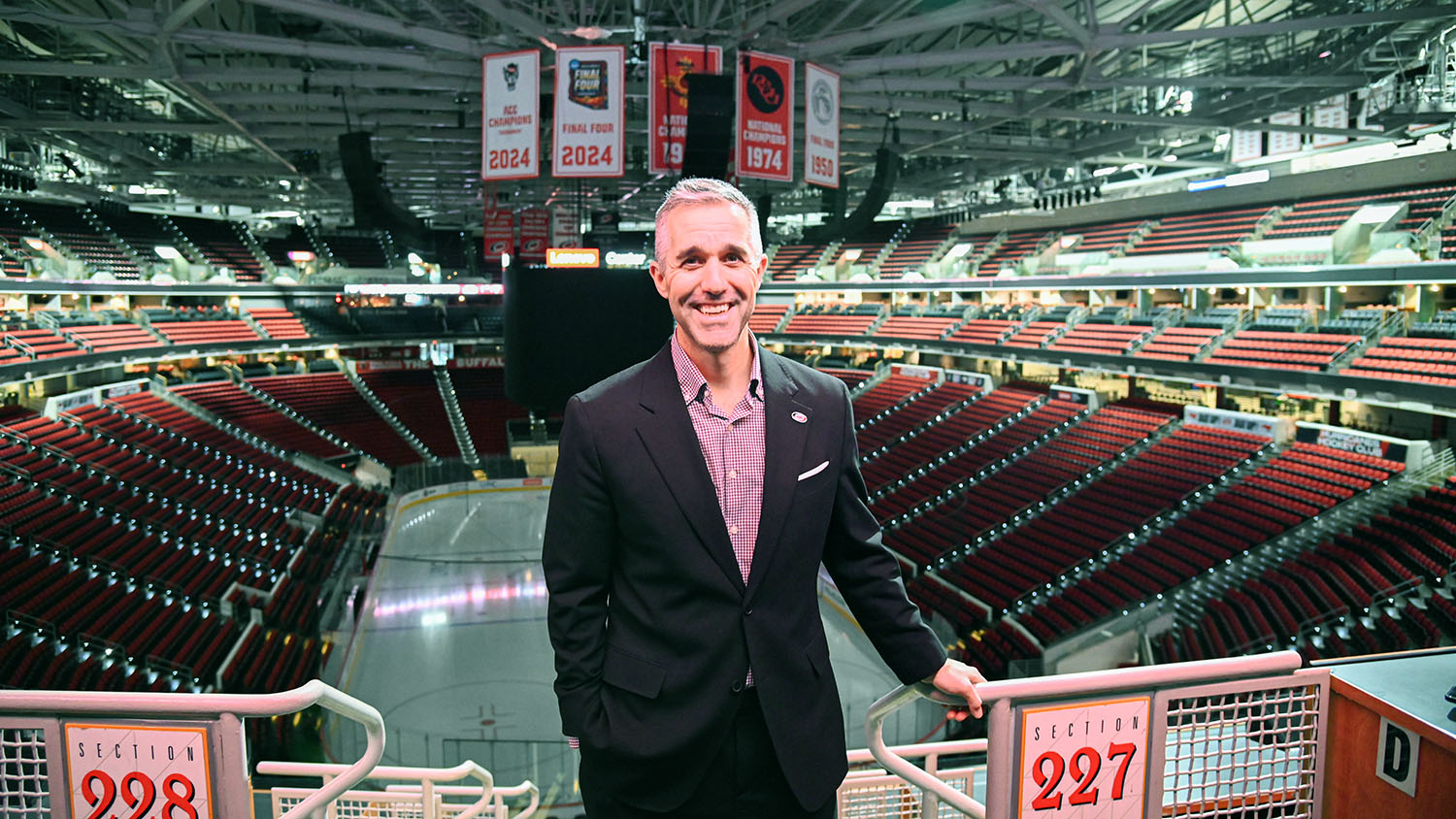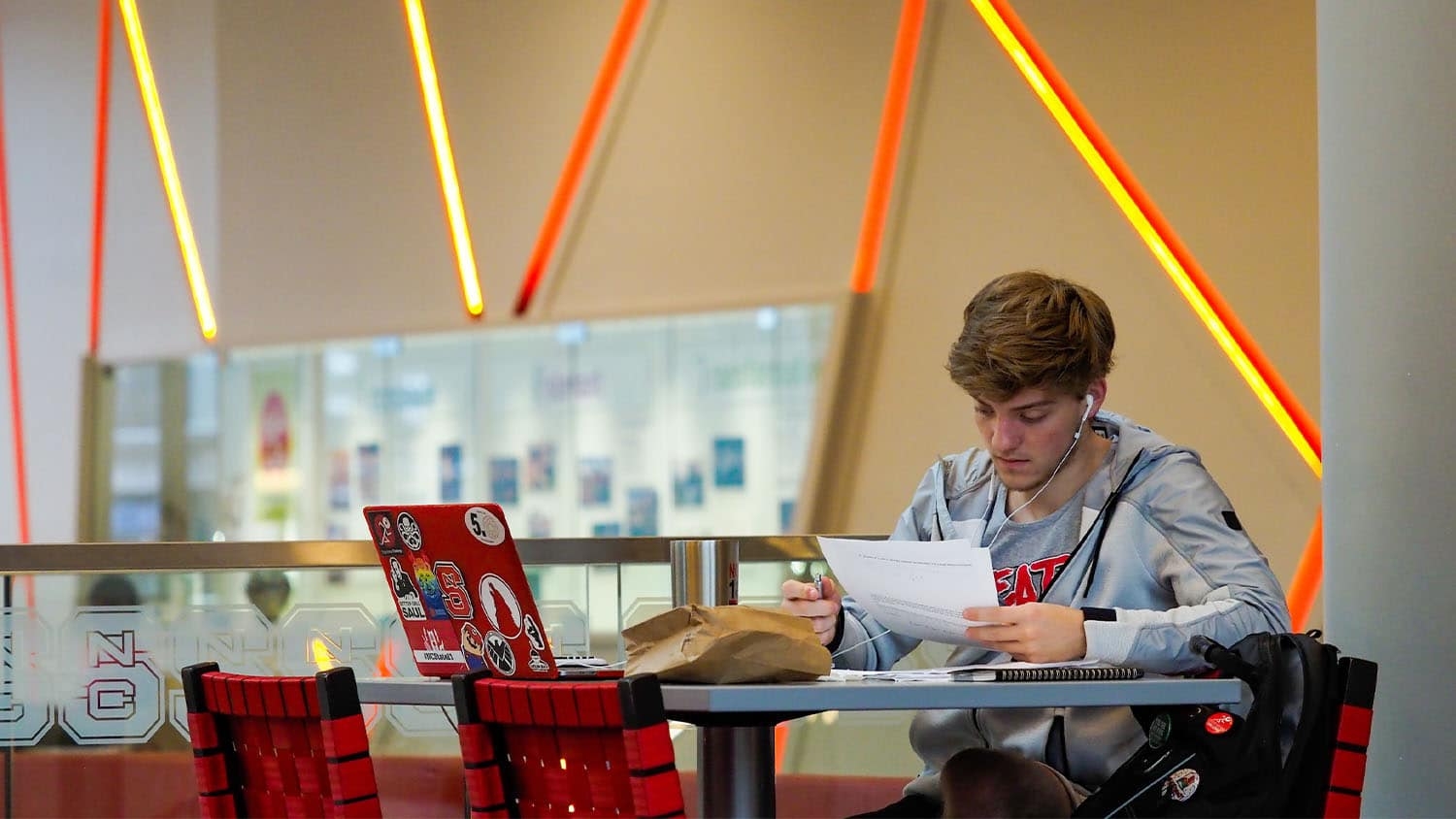Faculty Who Think and Do, Dr. Andrew Binder
In July of 2015, Dr. Andrew Binder stepped into the role of Director of Graduate Programs for the Department of Communication’s Masters program. For the next three and a half years, Dr. Binder advocated for both faculty and students in the program. He made a significant curriculum change that allowed students to take more electives, reached out to underrepresented minority students and recruited more students with diverse backgrounds, and he produced brief recruitment videos to demonstrate life as a graduate student throughout his time in the role.
“It’s been a good experience,” said Dr. Binder. “I think it’s important for every faculty member to step into an administrative role at some point in their career.”
Being on the administrative side of academia has given Dr. Binder new perspectives and challenges, but since stepping down from the role in January, he has been excited to take on new endeavors.
While he continues to teach at NC State, Dr. Binder will take on a new position with the Center for Health and Human Environment, funded by the National Institute for Environmental Health Sciences (NIEHS). As co-Director of the Community Engagement Core, he will research communicating complex environmental health topics to a variety of audiences.
This new role might also provide Dr. Binder with an opportunity to work on a project pertaining to the relationship between social media and risk, one of his main research focuses. His prior research on the topic began after he published an article about Fukushima and twitter commentary about nuclear risk in the United States. Fellow researchers reached out to Dr. Binder after reading his research, leading them to form a loose collaborative interested in social media and risk.
The group has been developing a generalized model of how commentary on social media unfolds – primarily about natural disasters. Currently, Dr. Binder is analyzing data on power outages from hurricanes Florence and Matthew that will be included in a National Science Foundation grant proposal they/he are writing.
Some additional research of Dr. Binder’s include:
- An ongoing project seeking to genetically engineer and repopulate the American Chestnut Tree. Dr. Binder is examining how the debate is unfolding between various groups involved, such as scientists and native americans, with an aim to understand how native american voices are being brought into the debate.
- A National Science Foundation grant on how people use reclaimed water in their homes. Dr. Binder worked with engineers to explore public opinions on recycling water within a household.
On top of his research and teaching, Dr. Binder attends an annual meeting for the society for risk analysis. Within the society, he participates in a risk communication speciality group where he was recently elected to be Chair Elect for 2019 before he becomes Chair of the group in 2020.
To learn more about Dr. Binder, his publications, and his research, read his Faculty Biography here.
Fun Facts about Dr. Binder:
- After graduation from undergrad, Dr. Binder taught English in Marseilles, France, for a year
- After teaching in France, he joined the Peace Corps
- He spent two years in Cameroon with the Peace Corps where he taught English as a second language again.
- In addition to English, he educated 6-12 grade students on HIV/AIDS prevention
- His time in the Peace Corps is what inspired him to attend grad school for Communication
- He would like to apply for a Fulbright Scholarship and live in a different country for a year


